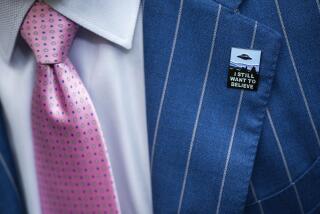Employee Lie Tests Criticized at Hearing
- Share via
WASHINGTON — The use of lie detectors in the workplace was put to the test Friday as opponents told a Senate panel that the polygraph is “little better than tea leaf reading or crystal ball gazing,” while proponents called it an important diagnostic instrument.
“Science has not found a cure for the common cold and science has not yet developed a machine that can detect lies,” Dr. John F. Beary III of the American Medical Assn. told the Senate Labor and Human Resources Committee.
Beary called the polygraph nothing more than “a fancy blood pressure cuff” and said that “there is no body response that’s unique to lying.”
Beary submitted an AMA report concluding that, although the polygraph can be useful in criminal investigations, lie detector testing of employees and job applicants has not been adequately studied. A wide range of false-positive and false-negative results makes such a use too unpredictable, it said.
New York State Atty. Gen. Robert Abrams cited a study by the federal Office of Technology Assessment which found that, under the narrowest type of inquiry, polygraph tests incorrectly labeled as liars an average of 19% of truthful people.
400,000 ‘Branded as Liars’
“Even using the conservative 19% estimate, of the nearly 2 million employees and applicants for employment tested last year, a minimum of 400,000 honest people were unfairly branded as liars and have had their lives scarred,” he said.
After criticizing the machine as “little better than tea leaf reading or crystal ball gazing,” Abrams called for federal legislation to end the current state-by-state patchwork of laws and regulations.
William J. Scheve Jr., president of the American Polygraph Assn., blamed problems on the polygraph operator, not the machine.
“It is not the polygraph itself that is potentially abusive but the few unskilled or unethical examiners who cause isolated instances of polygraph abuse,” he said.
William Zierden, an executive of Circuit City Stores Inc. who testified on behalf of the U.S. Chamber of Commerce, said businesses should be allowed to use lie detectors to reduce losses from theft by detecting “high-risk” employees.
Scheve and Zierden said they support a bill in the House that would establish federal guidelines to assure that examiners are qualified and use accurate equipment, protect the rights of those being tested by making irrelevant personal questions illegal and assure that no employment decisions be made solely on polygraph test results.
More to Read
Inside the business of entertainment
The Wide Shot brings you news, analysis and insights on everything from streaming wars to production — and what it all means for the future.
You may occasionally receive promotional content from the Los Angeles Times.










